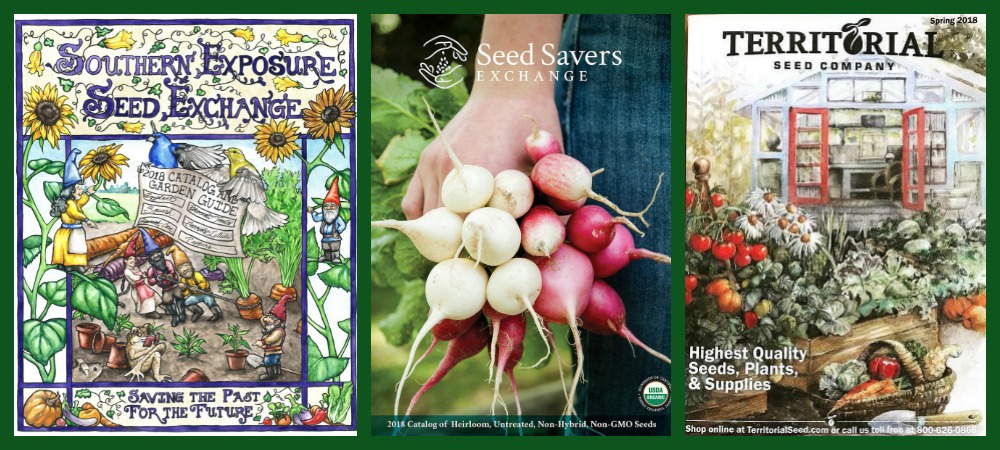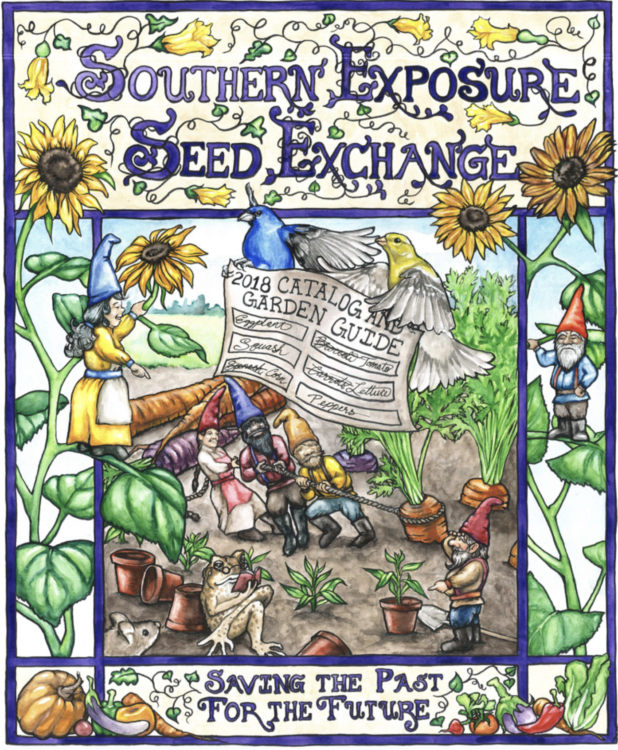Why Use Organic Seed? PLUS Our Fresh Picks for Best Organic Seed Companies!
The Growing Demand for Organic Seed
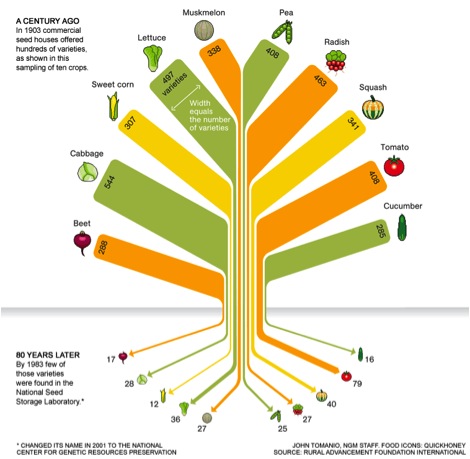 Who owns seed? Check out the image to the left to see the seriousness of the seed monopoly, and therefore the monopoly of our food supply, as it has evolved over the last 100 years.
Who owns seed? Check out the image to the left to see the seriousness of the seed monopoly, and therefore the monopoly of our food supply, as it has evolved over the last 100 years.
Below you will find the seed catalogs that I have grown up with as a home gardener, an organic CSA farmer, and, eventually, a biodynamic gardener. I am especially fond of Baker Creek Seeds, as I remember their first colorful and homey catalog with Jere Gettle’s passion for seed collecting jumping off of every page in 1998, the year I was gardening with a toddler in tow. I have followed him and his young family on their world wide trips (Jere is known as the Indiana Jones of seed collecting) and even visited the Baker Creek Seed Bank in Petaluma, California in 2012.
Before turning my small Virginia earth into a Community Supported Agriculture farm in 2004, I was trained by one of four certified Ecology Action’s GROW BIOINTENSIVE instructors in the country at a community college an hour from my home. A decade later, Cindy Conner, my teacher, brought her considerable knowledge and wisdom of growing to feed your family, and others, in her books, Grow a Sustainable Diet: Planning and Growing to Feed Ourselves and the Earth, and Seed Libraries: And Other Means of Keeping Seeds in the Hands of the People. You can visit Cindy on her Homeplace Earth website.
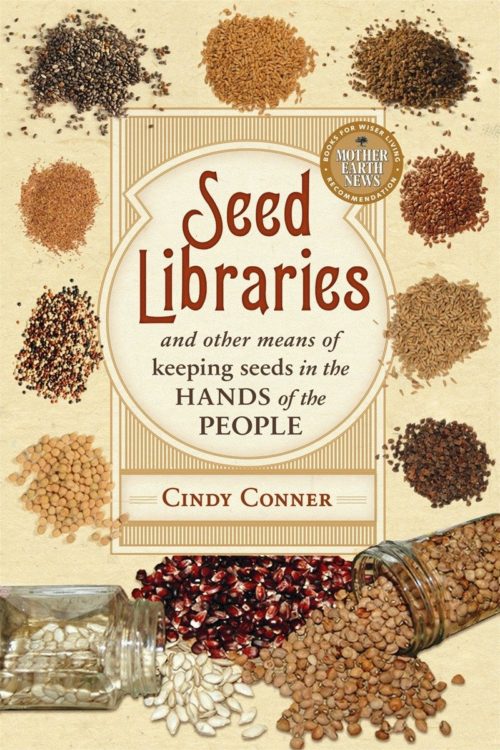 As Cindy writes in the description of her book, Seed Libraries: and other means of keeping seeds in the HANDS of the PEOPLE:
As Cindy writes in the description of her book, Seed Libraries: and other means of keeping seeds in the HANDS of the PEOPLE:
“Historically, seed companies were generally small, often family-run businesses. Because they were regionally based, they could focus on varieties well-suited to the local environment. A Pacific Northwest company, for example, would specialize in different cultivars than a company based in the Southeast. However the absorption of these small, independent seed businesses into large multinationals, combined with the advancement of biotechnology resulting in hybrids and GMO seeds, has led to a serious loss of genetic diversity. The public is now at the mercy of the corporations that control the seeds.
“In the past few years, gardeners have realized the inherent danger in this situation. A growing movement is striving to preserve and expand our stock of heritage and heirloom varieties through seed saving and sharing opportunities. Seed Libraries is a practical guide to saving seeds through community programs, including:
- Step-by-step instructions for setting up a seed library
- A wealth of ideas to help attract patrons and keep the momentum going
- Profiles of existing libraries and other types of seed saving partnerships
“Whoever controls the seeds controls the food supply. By empowering communities to preserve and protect the genetic diversity of their harvest, Seed Libraries is the first step towards reclaiming our self-reliance while enhancing food security and ensuring that the future of food is healthy, vibrant, tasty, and nutritious.”
Notice below how all of these organic seed catalogs have “stories” about people who are tied to the land and are passionate about caring for the earth… all except for Seeds of Change at the bottom of the list. I have included them because they are so prolific, but really, discover for yourself the inspirational efforts to preserve our food supply’s integrity by these individuals and companies and decide for yourself who you want to support.
— Lisa Reagan, Editor
Read Lisa’s stories on food and farming, Beyond Sustainability: The Regenerative Promise of Biodynamics, Mindfully Growing Greens, Winter Salad Harvest: Or Mindlessly Growing Greens and The Future of Food.
Find Kindred’s Food and Farming Resources (including Shopping Guides)
Why Buying and Saving Organic Seed Can Save the Planet
 The loss of heirloom and landrace crop varieties over the last century is well documented. Consolidation in the seed industry, changes in breeding methods and technology, restrictive intellectual property practices, and the loss of wild and farming land to development all contribute to the erosion of the plant genetic materials that are essential to sustaining life.
The loss of heirloom and landrace crop varieties over the last century is well documented. Consolidation in the seed industry, changes in breeding methods and technology, restrictive intellectual property practices, and the loss of wild and farming land to development all contribute to the erosion of the plant genetic materials that are essential to sustaining life.
In addition to this loss in genetics there has been a concurrent loss in the base of knowledge and skills necessary to properly steward and improve plant genetics in a ecologically and ethically sound manner. Farmers, once the primary seed stewards around the globe, have rapidly been removed from the seed circle – no longer participating in plant breeding or conservation. Only a few generations ago, the practices of on-farm seed saving and basic crop improvement were not only common, but necessary.
While university and private sector involvement in seed systems has provided much gain, it has also created a field of specialization that has left the farmer as an “end-user” of a product instead of an active participant in building and maintaining plant genetic health and diversity. The diversity of our domesticated plant genetics – flavor, color, abundance, nutrition – is a direct result of the relationship between farmers and their crops. The unhealthy trends in seed systems put us at risk of losing our seed heritage – and the skills necessary to conserve, reinvigorate and improve this heritage for future generations. Please watch the video below for a better understand and “in the field” look at organic seeds:
From the Organic Seed Alliance.
Our Fresh Picks for Organic Seed Companies
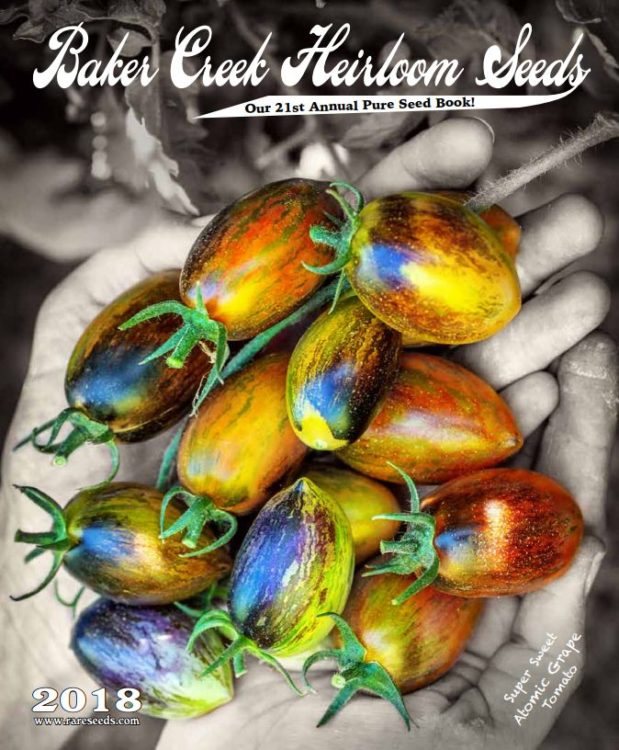 Jere Gettle always had a passion for growing things, and at age three, he planted his first garden. Ever since that day, he wanted to be involved in the seed industry. So at the age of 17, he printed the first small Baker Creek Heirloom Seed catalog in 1998. The company has grown to offer 1300 varieties of vegetables, flowers and herbs—the largest selection of heirloom varieties in the U.S.A.
Jere Gettle always had a passion for growing things, and at age three, he planted his first garden. Ever since that day, he wanted to be involved in the seed industry. So at the age of 17, he printed the first small Baker Creek Heirloom Seed catalog in 1998. The company has grown to offer 1300 varieties of vegetables, flowers and herbs—the largest selection of heirloom varieties in the U.S.A.
Baker Creek carries one of the largest selections of seeds from the 19th century, including many Asian and European varieties. The company has become a tool to promote and preserve agricultural and culinary heritage. Our company and seeds have been featured in The New York Times, the Associated Press, Oprah Magazine, Martha Stewart, and many others. Gardeners can request a free 196-page color catalog that now mails to 310,000 gardeners nationally. (Click on the image to open the free 2018 PDF version.)
Baker Creek started hosting festivals in 2000 as an idea to bring gardeners, homesteaders and natural food enthusiasts together to exchange thoughts, seeds, listen to speakers and enjoy vendors, old-time music and much more. These festivals gave birth to the idea for our pioneer village, Bakersville. Other projects include our trial gardens, seed collecting expeditions, our popular online forums at idigmygarden.com and educational produce exhibits.
Baker Creek wants you to know:
All of our seed is non-hybrid, non-GMO, non-treated and non-patented.
We do not buy seed from Monsanto-owned Seminis. We boycott all gene-altering companies. We are not members of the pro-GMO American Seed Trade Organization! We work with a network of about 100 small farmers, gardeners and seed growers to bring you the best selection of seeds available! Many of our varieties we sell were collected by us on our travels abroad.
We offer over 1300 fine varieties! Unique seeds from 70 countries!
Seed Savers Exchange
The Seed Savers Exchange conserve and promote America’s culturally diverse but endangered garden and food crop heritage for future generations by collecting, growing, and sharing heirloom seeds and plants.Seed Savers Exchange takes threats to biodiversity seriously. We maintain a collection of more than 20,000 heirloom and open-pollinated vegetable, herb, and plant varieties, including over 1,000 varieties of heritage apple trees. We take great care to ensure the health and viability of our collection for generations of growers to come. We keep the bulk of our collection in an underground freezer vault at Heritage Farm.
Ex situ preservation is what we call the practice of protecting seeds in genebanks and in situ preservation is the work you do in your back yard.Gardeners share homegrown seeds with one another through our seed exchange. The seed exchange is available online and in print to encourage seed savers of all generations to participate.
Visit Seed Savers Exchange. Download SSE’s 2018 Seed Catalog.
Territorial Seed Company
Territorial Seed Company is a privately held company, wholly owned by Tom and Julie Johns. The first Territorial Seed catalog was written in the fall of 1979. The earliest seed-production crops were grown in isolation within neighbors’ backyards; including an open-pollinated Brussels sprout, a heirloom cranberry bean, and Lorane fava bean cover crop seed. In wintertime, the mail-order seed business operated in a drafty warehouse, where customers waited their turn on the telephone party line and neighbors who seasonally helped in the warehouse, took turns chopping kindling to keep the woodstove stoked.
Johnny’s Selected Seeds
Like anything grown from seed, the company known as Johnny’s Selected Seeds had the smallest of beginnings. It put down its first roots in relative obscurity in spring 1973, when founder Rob Johnston, Jr. at age 22, and with $500.00 in savings, started the fledgling seed company in a New Hampshire farmhouse attic, moving in the fall to his parents’ home in Acton, Massachusetts.
In 2003, the 30th anniversary for Johnny’s Selected Seeds, the company opened the Catalog Store. The store, located at 955 Benton Avenue, Winslow, ME offers a physical location where customers can shop and experience Johnny’s top-notch customer service.
In 2006, Johnny’s launched an employee ownership program, with Johnston and his wife, Janika Eckert selling shares to an Employee Stock Ownership Trust. The employees currently own one third of the company’s stock and are on track for 100% ownership by 2016. Looking forward, the future for Johnny’s is bright, and the company will continue, as it always has, to focus on providing customers with the best products, information, research and service.
Turtle Tree Biodynamic Seeds
Turtle Tree Biodynamic Seeds are a small non-profit seed company that sells 100% open-pollinated vegetable, herb and flower seeds, all grown using biodynamic and organic practices both in our own seed garden and by other farmers and gardeners who use biodynamic methods. All our seed is non-gmo, non-hybrid, never treated, and grown without the use of chemical inputs. We are a part of a Camphill Village in Copake, NY, an intentional community, which includes people with developmental disabilites. People of all abilities help with growing, cleaning and packing our seeds. Our Mission includes growing and distributing high quality open-pollinated, biodynamically and organically grown vegetable, herb and flower seeds, and encouraging and eduacating people who want to grow and save open-pollinated vegetable, herb and flower seeds.
Fedco Seed
Fedco is a cooperative, one of the few seed companies so organized in the United States. Because we do not have an individual owner or beneficiary, profit is not our primary goal. Consumers own 60% of the cooperative and worker members 40%. Consumer and worker members share proportionately in the cooperative’s profits through our annual patronage dividends.
Our cooperative structure gives workers a real voice in running the company and a real stake in its success, enabling us to attract and retain talented workers. Year after year our staff turnover has been very low. The cooperative ethic recognizes that we are all in this together. What is good for our managers should be good for our workers and good for our customers and vice versa. Beginning from a Maine base with 98 orders the first year, after 30 years we now serve growers in all 50 states, filling over 24,000 orders totaling $3 million annually.
![]() Southern Exposure Seed Exchange
Southern Exposure Seed Exchange
Southern Exposure Seed Exchange started in 1982 as an outgrowth of a love affair with heirloom varieties and in seed saving. Southern Exposure Seed Exchange had its beginning in a small family garden and a kitchen co-opted for seed processing. The kitchen garden has since expanded to numerous growing areas supplemented by a nationwide seed grower network. Now the seed company has its own office, germination testing facility, and environmentally controlled seed storage areas. From the beginning we have believed that our seed company serves: (1) as a source for new, high performance varieties, and (2) most importantly, as a preservation tool for collecting and distributing varieties with special qualities: varieties with heritage, flavor, disease resistance, or other qualities of interest to gardeners.
Southern Exposure Seed Exchange is located near Thomas Jefferson’s Monticello in the gently rolling foothills of Central Virginia, USA, and offers more than 700 varieties of vegetable, flower, herb, grain and cover crop seeds. We emphasize varieties that perform well in the Mid-Atlantic and Southeast, although gardeners and farmers from all over the country grow our seeds. We do extensive germination and purity testing to ensure that we always provide the highest quality possible.
Botanical Interests
Curtis and Judy started Botanical Interests because they believed that gardeners were not getting the information they needed from their seed packets. Their desire for more information along with their passion for spreading gardening wisdom led them to create a unique seed packet that is not only beautiful, but is also filled with facts, tips, recipes and quality seed.
When they realized that the venerable tradition of American families passing their gardening lore, techniques and even secrets from generation to generation was fading, Curtis and Judy knew they had to help preserve all that knowledge. “At Botanical Interests, we’re helping people reconnect with some of that lost art,” Judy says. Every Botanical Interests seed packet is designed to help gardeners succeed and create their own traditions. Featuring gorgeous botanical artists’ renderings of each variety, every packet provides a wealth of information, inside and out. “I like to say that we’re a gardening education company that just happens to sell seeds,” Curtis says. “Our packets are like mini-encyclopedias, full of information to inspire and assist every type of gardener.”
High Mowing Organic Seeds
High Mowing Organic Seeds began in 1996 with just 28 varieties. After tilling up a portion of his backyard and turning his shed into a seed packing area, founder Tom Stearns had no trouble selling the seed he grew that first year. Suddenly, what had started as a hobby became a practical business pursuit, as Tom realized the growing and unmet demand for organic seed. This demand allowed Tom to expand the business beyond his backyard, renting parcels of land to produce the seed he was selling through a hand-made catalog. By 2001, business had grown to such an extent that Tom began to contract with other local farms to grow seed, in addition to continuing to produce seed himself on High Mowing’s own 5 acres.
High Mowing Organic Seeds has grown exponentially, and what started as a one-man operation is now a thriving business making available to home gardeners and commercial growers over 600 heirloom, open-pollinated and hybrid varieties of vegetable, fruit, herb and flower seed. True to our roots, High Mowing Organic Seeds continues to grow many of the varieties we sell on our 40 acre farm, setting us apart from the majority of other seed companies.
Seeds of Change
Even though they are now owned by the Mars, Inc, company, Seeds of Change says they have remained true to their original vision by offering the largest selection of organic seeds in the industry, including heirloom, traditional, and rare seeds. “Our seeds are produced through a network of certified organic family farms and professional growers. Through these partnerships, we continually cultivate study and develop seeds with the goal of producing the finest certified organic, open-pollinated varieties to share with our fellow gardeners and farmers. Each year, we collect data and conduct evaluation on all of our Seeds of Change varieties of seed. Our research and testing provide confidence in the quality of our seed and ensure high germination rates that produce healthy, hardy plants.”
Seed Saving and Exchange Resources
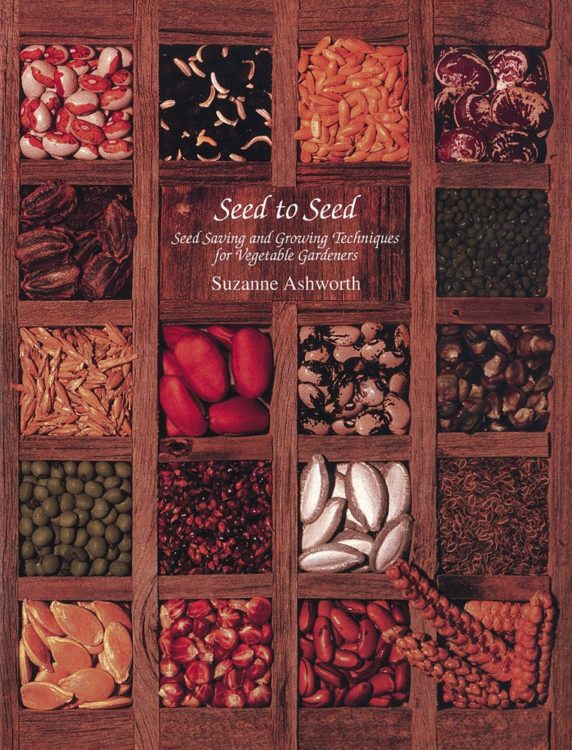 Enjoy these resources for seed saving and the Organic Seed Alliance’s explanation below for why it is necessary to purchase organic seed. Skip to the video if you are a visual learner!
Enjoy these resources for seed saving and the Organic Seed Alliance’s explanation below for why it is necessary to purchase organic seed. Skip to the video if you are a visual learner!
Find out the Organic Seed Alliance’s strategy for preserving biodiversity through uncorrupted seed and meeting the growing demand for organic seed. Download the State of Organic Seed Report for free.
Visit and support the Organic Seed Alliance.
Save Your Own Seed! Download this free guide from OSA, A Seed Saving Guide for Gardeners and Farmers.
Join a Seed Savers Exchange and perhaps your home garden seeds could end up in the Svalbard Global Seed Vault, where over 600,000 seeds are stored in “the ultimate safety deposit box for biodiversity and global food supply preservation… The Svalbard Global Seed Vault offers protection against permanent loss due to natural disasters, wars, equipment failures, accidents, and loss of funding that can plague even the best gene banks.”
Save a Tree and Download many of these catalogs at their websites, or just order the seeds online. Where possible, I have included a link to the downloadable, pdf or online version of the catalog.


